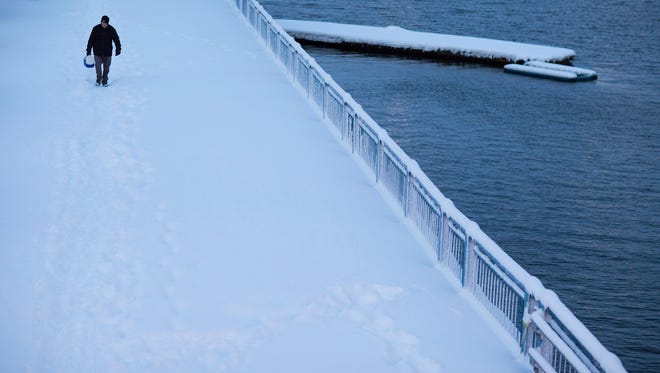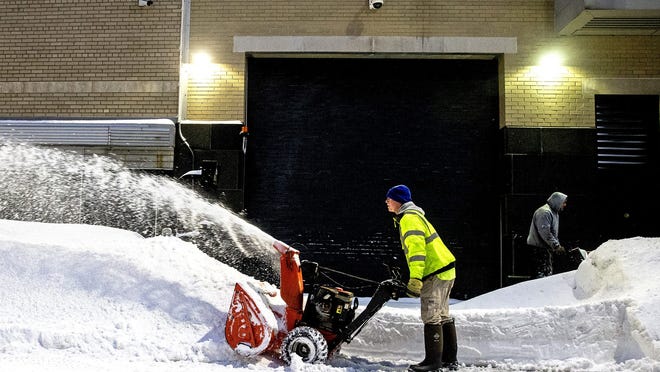
- Boston and Portland, Maine, are forecast for a 70-90% chance of at least 3 inches of snow on Saturday into Saturday night, according to the National Weather Service.
- The storm is likely to become a “bomb cyclone,” a winter hurricane that occurs when a cyclone strengthens by rapidly intensifying or quickly dropping in atmospheric pressure.
A storm with the potential to grow into a powerful nor'easter is forecast to strike the Northeast this weekend, bringing with it the possibility of heavy snow, strong winds and coastal flooding.
The storm is forecast to develop off the coast of the Carolinas, but not for another few days, leaving its exact path and potential impact subject to change.
Coastal areas in the Northeast are most likely to experience heavy snow, with Boston and Portland, Maine, forecast for a 70-90% chance of at least 3 inches on Saturday into Saturday night, according to the National Weather Service.
"Confidence is increasing that a coastal storm will bring significant winter impacts to parts of the Mid-Atlantic and Northeast, including the I-95 major metro areas, Friday through the weekend," the National Weather Service Weather Prediction Center wrote on Tuesday. "Heavy snow, strong winds, and coastal flooding are all possible. Stay tuned!"
WHAT IS A NOR'EASTER?These storms can batter the East Coast and impact millions of people
While the storm's exact path is uncertain, it's likely that it will become a "bomb cyclone," a winter hurricane that occurs when a cyclone strengthens by rapidly intensifying or quickly dropping in atmospheric pressure. The storm could also possibly build to gain nor'easter status, characterized as a large, intense area of low pressure that typically develops off the East Coast, hence the name.

There is high confidence that the storm will move northeast along the coast and head near or into the Gulf of Maine on Saturday, NWS meteorologist Hunter Tubbs told the Fosters Daily Democrat, part of the USA TODAY Network.
"There's significantly less confidence in how close that system will track to the New England coastline, which will have a big impact on snowfall totals and impacts," Tubbs said. "If it tracks close to the coast, there's the potential for pretty heavy snowfall, but if it tracks too far offshore, there's a chance for more of a light accumulation."
He added, "A difference of even 50 to 100 miles closer or farther away from the coast can make a huge difference in what we see."
The last notable nor'easter to hit the Northeast, in October, hammered the area with hurricane-force winds and heavy rains, leaving more than 600,000 homes and businesses without power at one point.
Contributing: Doyle Rice, USA TODAY; Megan Fernandes, The Fosters Daily Democrat (Dover, New Hampshire)








